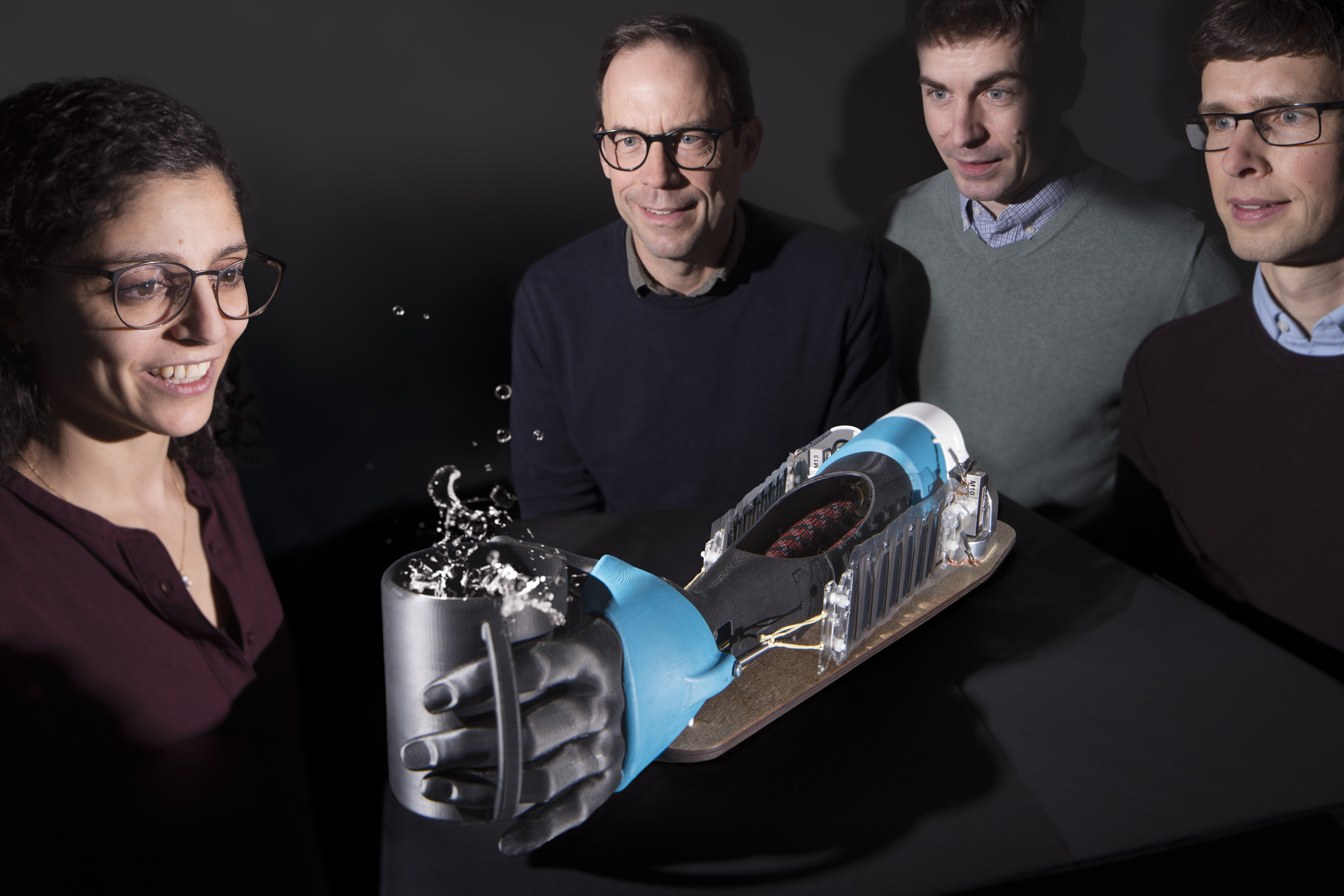A research team led by Dr. Alona Shagan Shomron (Max Planck Institute for Intelligent Systems), Prof. Syn Schmitt (University of Stuttgart), and Prof. Daniel Häufle (HIH) under the “Bionic Intelligence Tübingen Stuttgart” (BITS) collaboration is therefore developing new approaches for soft, wearable assistive systems powered by “artificial muscles.” These systems are designed to detect tremor movements in real time and counteract them with precise forces. In this way, people affected by tremor could regain greater control and safety in their daily lives. This was developed in collaboration with clinical colleagues at the Hertie Center for Neurology, in particular Daniel Weiß, Isabel Wurster, and Philipp Klocke.
The prototypes developed so far are lightweight, silent, and flexible – unlike many conventional devices that are often heavy, uncomfortable, or impractical. Their vision is a comfortable, everyday sleeve that provides lasting relief for patients.
The Parkinson’s Foundation is awarding the team the Innovation Prize in the category Parkinson’s Tremor. This support enables them to take the next step: improving the interaction of sensors, actuators, and comfort, and developing wearable prototypes suitable for everyday use.
The team believes that artificial muscles – slim, silent, and powerful – can lay the foundation for a new generation of assistive devices for tremor suppression.
More information on the website of the Parkinson’s Foundation (in German)

Photo: Alona Shagan Shomron (MPI-IS), Syn Schmitt (Uni Stuttgart), Christoph Keplinger (MPI-IS) and Daniel Häufle (HIH) (from left to right)
Copyright: MPI-IS, Stuttgart









